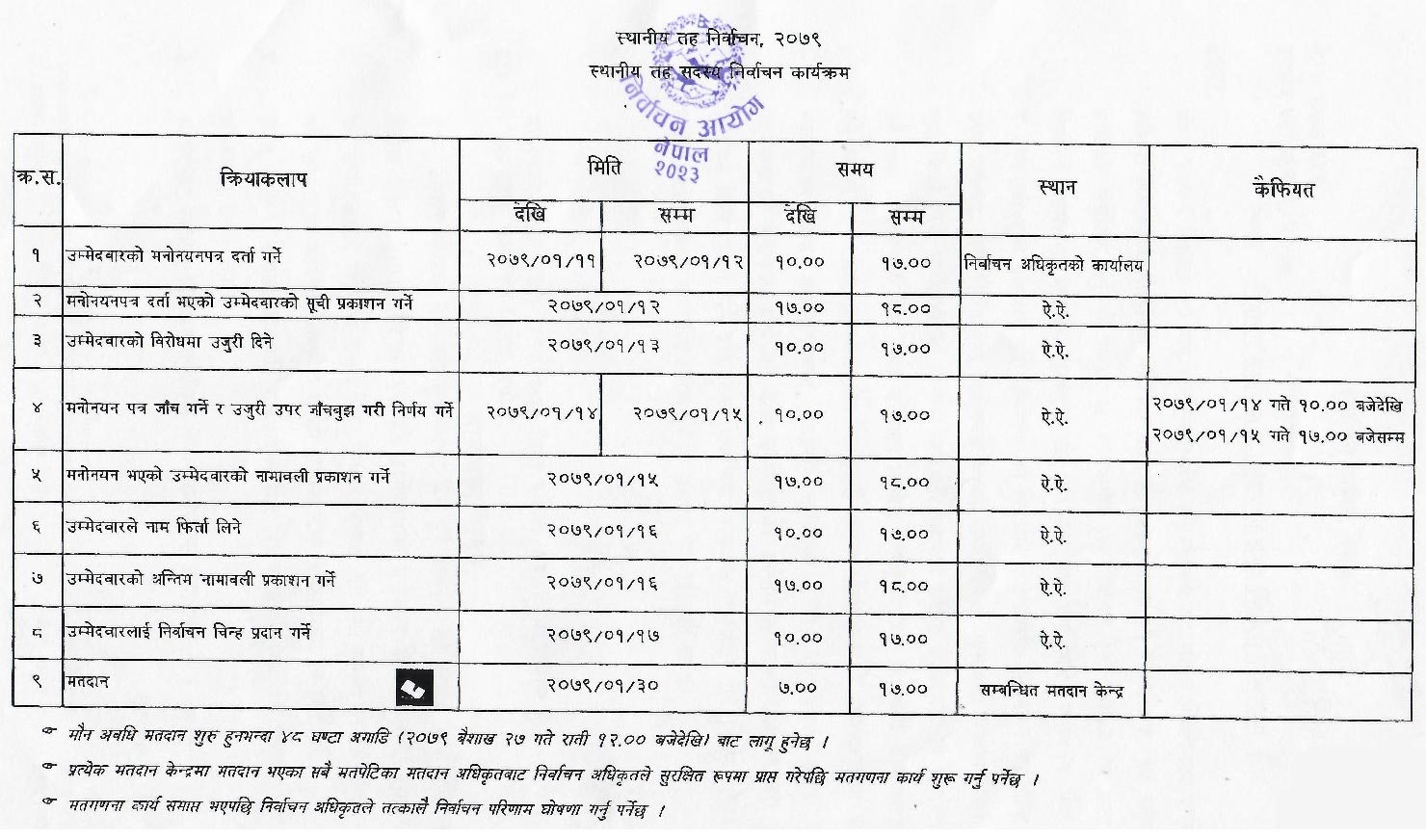
The Code of Conduct reflects the practice of practical conduct of political party cadres. Different professions and communities have their own codes of conduct which make the profession and business regular and sophisticated. The Code of Conduct covers the do's and don'ts. The Election Commission has published a code of conduct on how much to spend on elections. Under the code of conduct, the expenditure limit has been fixed for the candidates for various posts in the upcoming election on April 12.
The mayor and deputy mayor of Metropolitan City can spend a maximum of Rs. 750,000; The mayor and deputy mayor of the sub-metropolitan city can pay a maximum of Rs. 550,000; The mayor and deputy mayor of the municipality paid Rs 450,000; and the Chairman and Vice-Chairman of Rural Municipality have been given a limit of Rs. 350,000 for election campaigning.
The chairman and members of Metropolitan City donated Rs. 350,000; The chairman and members of Sub-Metropolitan City paid Rs. 250,000; Two lakhs by the chairman and members of the municipality; Arrangement has been made for the ward chairman and members of rural municipality to spend Rs. 150,000. The parties have also said that the proposed amount would be insufficient to make the election transparent and economical as the price hike has also affected the expenditure.
The parties had proposed setting a spending limit of at least Rs 10 million for the metropolitan elections. Earlier, the election expenses of the chief and deputy chief were fixed at Rs 350,000 but this time only Rs 50,000 has been fixed. The election expenses of the members have been fixed at Rs 25,000, according to the commission.
One of the other of the Election Commission must dare to establish the code of conduct for the employees, teachers, businessmen, industrialists, media persons, and voters working in governmental and non-governmental organizations. For election purposes, voters are more concerned with the election than the general public.
The attention of the Sobare Commission should be drawn as the voters can also influence the voters. The code of conduct should be formulated separately for candidates, employees, security personnel, traders, industrialists, voters, media personnel, etc.
A code of conduct is a matter of ethical philosophy. The code of conduct provides guidance for good deeds. It directs the practice of good manners and behavior.
Only if all parties participating in the election process showed satisfactory moral conduct will a fair election determine the standards of the country.
The code of conduct should be based on the principles of benevolence, justice, autonomy, and respect for civil society. The election code of conduct conveys a sense of responsibility to select good people's representatives to build the country through elections. The elected people's representative should be prudent, have a sense of responsibility towards the country and the people, be able to bear responsibility, and be able to make decisions even in difficult situations.
Notices

